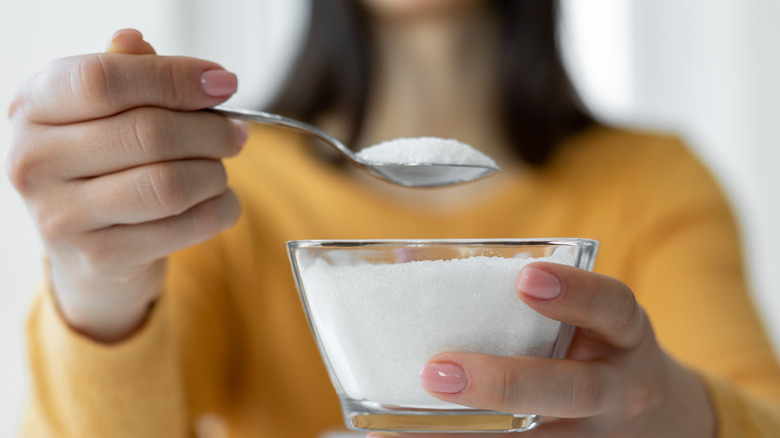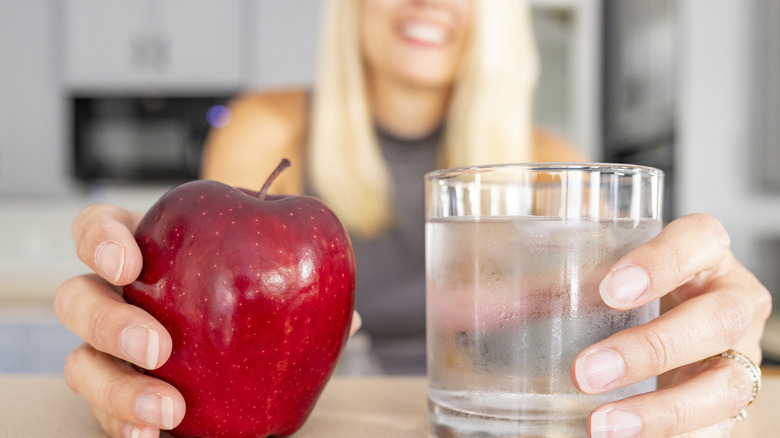
Goran13/Getty Images
Based on data from the U.S. Centers for Disease Control and Prevention, 5.6% of adults reach for fruit beverages daily. However, drinking more than a glass of fruit juice may lead to an unwanted — and life-threatening — side effect. According to a recently released study, drinking fruit juice every day was associated with an increased risk of experiencing a stroke.
The study, which was published in a 2024 issue of the Journal of Stroke, looked at the connection between fruit drinks and juices and two types of stroke: ischemic and intracerebral hemorrhage. One or two daily fruit juices didn’t appear to affect the odds of people having an ischemic stroke. However, they did seem to increase the risk of intracerebral hemorrhage.
As explained by the American Stroke Association, an intracerebral hemorrhage occurs when bleeding begins in the brain tissue. A 2021 study from the Journal of Nephrology noted that intracerebral hemorrhage events led to death in 36% of cases.
But why would drinking fruit juice have any impact on a person’s chance of suffering a stroke? To get an expert’s input, Health Digest asked Dr. Jason Singh, the Chief Medical Officer and Physician at One Oak Medical.
Fruit juice is a sugar overload for the body and brain

Bymuratdeniz/Getty Images
In Singh’s opinion, two fruit juice attributes are at play. The first involves the sugar content of many fruit juice varieties.
“Fruit juices are concentrated sources of fructose and glucose which absorb rapidly in our bodies that then causes insulin spike,” said Singh. “Chronic high insulin levels can then promote inflammation which can lead to atherosclerosis and hypertension — considered risk factors for stroke.”
The American Stroke Association acknowledges this link between sugar consumption and stroke risk, noting that people with diabetes are twice as apt to experience a stroke than those without the condition. This figure is supported by a 2023 study in the Journal of Stroke which found that people with diabetes had up to twice the stroke risk, as well as a greater likelihood of having more than one stroke.
Fruit juice is lacking beneficial dietary fiber

Sdominick/Getty Images
The second reason Singh sees a potential connection between excessive fruit juice consumption and stroke risk is related to the lack of fiber in fruit juice. Explained Singh, “Fiber in general slows sugar absorption and also prevent insulin spikes. There is a loss of fiber when you’re juicing that you would normally get if you had the raw fruits.”
Again, science backs Singh’s explanation. A 2023 meta-analysis published by the Journal of Stroke and Cerebrovascular Diseases found a likely connection between higher dietary fiber consumption and a correspondingly lower risk of stroke.
This doesn’t mean you have to turn away from fruit juice, but it may be best to drink it in moderation. Singh advised that adults drink no more than 4 to 6 ounces of fruit juice each day. (He mentioned that children should drink less.) Additionally, he recommended eating whole fruit, choosing juices with lower sugar content, or diluting fruit juices with water to further protect against stroke.
Credit: healthdigest.com










